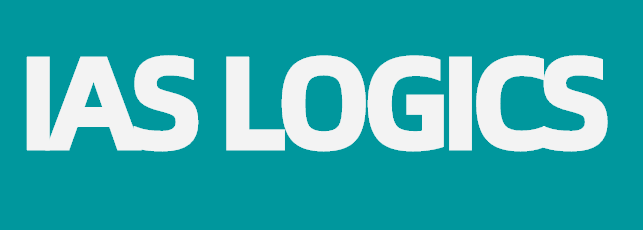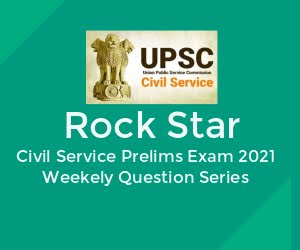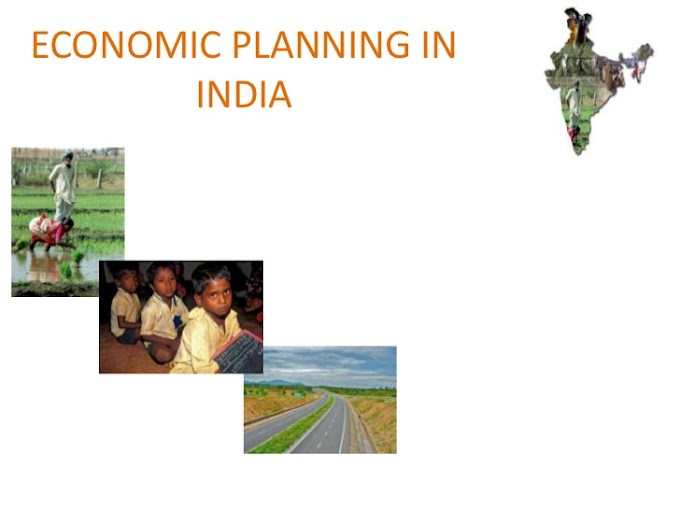Presidents -Indian National Congress
|
Year |
Venue |
President |
|
1885, 1882 |
Bombay |
W.C.Bannerji |
|
1886 |
Calcutta |
Dadabhai Naoroji |
|
1893 |
Lahore |
Dadabhai Naoroji |
|
1906 |
Calcutta |
Dadabhai Naoroji |
|
1887 |
Madras |
Badruddin Tyyabji (first Muslim President) |
|
1888 |
Allahabad |
George Yule (first English President) |
|
1889 |
Bombay |
Sir William Wedderburn |
|
1890 |
Calcutta |
Sir Feroze S.Mehta |
|
1895, 1902 |
Poona, Ahmedabad |
S.N.Banerjee |
|
1905 |
Banaras |
G.K.Gokhale |
|
1907, 1908 |
Surat, Madras |
Rasbehari Ghosh |
|
1909 |
Lahore |
M.M.Malviya |
|
1916 |
Lucknow |
A.C.Majumdar (Re - union of the Congress) |
|
1917 |
Calcutta |
Annie Besant (first woman President) |
|
1919 |
Amritsar |
Motilal Nehru |
|
1920 |
Calcutta (special 0session) |
Lala Lajpat Rai |
|
1921, 1922 |
Ahmedabad, Gaya |
C.R.Das |
|
1923 |
Delhi (special session) |
Abdul Kalam Azad (Youngest President) |
|
1924 |
Belgaon |
M.K.Gandhi |
|
1925 |
Kanpur |
Sarojini Naidu (first Indian woman President) |
|
1928 |
Calcutta |
Motilal Nehru (first All India Youth Congress Formed) |
|
1929 |
Lahore |
J.L.Nehru (Poorna Swaraj resolution was passed) |
|
1931 |
Karachi |
Vallabhbhai Patel (Resolution on Fundamental rights and the National Economic Program was passed) |
|
1932, 1933 |
Delhi, Calcutta |
(Session Banned) |
|
1934 |
Bombay |
Rajendra Prasad |
|
1936 |
Lucknow |
J.L.Nehru |
|
1937 |
Faizpur |
J.L.Nehru (first session in a village) |
|
1938 |
Haripura |
S.C.Bose (A National Planning Committed was set - up under Jawahar Lal Nehru). |
|
1939 |
Tripuri |
S.C.Bose was re - elected but had to resign due to protest by Gandhiji (as Gandhiji supported Dr.Pattabhi Sitaramayya). Rajendra Prasad was appointed in his place. |
|
1940 |
Ramgarh |
Abdul Kalam Azad |
|
1946 |
Meerut |
Acharya J.B.Kriplani |
|
1948 |
Jaipur |
Dr. Pattabhi Sitaramayya |
History of INC
Before 1885
- Association of Landholders: Landholders Society (1837), Bengal British India Society (1843). In 1851, the two were merged to form the British Indian Association.
- Bombay Association and Madras Native Association Were established in 1852. They sent petitions suggesting changes in EIC’s charter to end company’s monopoly of salt and indigo.
- Associations like Poona Sarvjanik Sabha were established to promote reform and political consciousness.
- 1876— Indian Association was founded in Calcutta by Surendranath Banerjee, & Anand mohan Bose Madras
- Mahajan Sabha and Bombay Presidency Association were established in 1884.
- In December 1883, the Indian Association of Surendra Nath Bannerjee& Anand mohan Bose decided to invite prominent public men and associations to discuss questions of general concern. This was referred to as the National Conference (in 1883) and is described as the ‘dress rehearsal’ for the IndianNational Congress (INC).
- National Conference & Indian National Union (by A.O Hume in 1884) merged to form the Indian National Congress in 1885
Aims and Objectives of Congress
- Promotion of friendship amongst the countrymen
- Development and consolidation of feeling of national unity irre- spective of race, caste, religion or provinces
- Formulation of popular demands and presentation before the Gov-ernment through petitions.
- Training and organization of public opinion.
- Consolidation of sentiments of national unity
- Recording of the opinions of educated classes on pressing problems
- Laying down lines for future course of action in public interest
Indian National Congress Formation
- The First meeting of the INC was organised by A O Hume at Gokaldas Tejpal Sanskrit College on 28th December 1885 (Bombay). Its first President was W C Bonnerjee. It was the first organised expression of the Indian National movement on an all-India scale.
- Hume’s main purpose in encouraging the foundation of the congress was probably to provide a “safety valve” to the growing discontent among the educated Indians
The Methods of Work
- Early Congressmen had faith in peaceful and constitutional agitation.
- Prayers & petitions were the instruments.
- Congress sessions lasted only for three days a year. had no machinery to carry on the work in the interval.
- They helieved in the goodness of the British nation and believed that all would be well if the British could be acquainted with the true slate of affairs in India. Deputations of Indians were sent to inform the British public
- In 1889, a British Committee of INC was founded.
The Moderates
The Congress programme during the first phase of the Freedom Movement (1885-1905) was very moderate.
- It demanded mild constitutional reforms. economic relief, administrative reorganization and protection of civil rights.
- A strong point made by the nationalists during this phase was about the economic drain of India.
- Political methods of the moderates were constitutional agitations within four walls
- Moderates believed that the british people & parliament wanted to be just lo India but did not know the true state of affairs.
The other important demands were:
- Organisation of the provincial councils,
- Simultaneous holding of examinations for the I.C.S in India and England.
- Reconstitution of the Indian Council, 1892
- The separation of (he judiciary from the executive, and the repeal of the Arms Act,
- The appointment of Indians to the . commissioned ranks in the Army,
- The reduction of military expenditure etc.
- Indianisation of higher grades of the administrative services on economic, political & moral grounds
During the first twenty years (1885-1905) there was practically no change in the Congress programme. The leaders were cautious in their demands. They did not want to annoy the government and incur the risk of suppression. To pacify them, the government was forced to pass the Indian Councils Act, 1892 but the moderates raised the slogan No taxation without representation. However, during this period, a general impression grew (hat the Moderates were political mendicants. only petitioning and praying to the British Government for petty concessions. This was because early Congress leaders believed that the presence of the British administration was important for continued political progress in India.
The Extremists
Ideological Basis of Extremism
Attachment to rationalism and western ideals had almost alienated the ‘Liberal’ (Moderate) school from the masses in India. Socio-religious reform also influenced the extremists ideology Movements like Ramakrishna Paramahamsa and his disciple, Swami Vivekananda Swami Dayananda, and the Arya Samaj founded by him with a strong emphasis in native pride, played a vital role in the birth of extremist philosophy.
They derived inspiration from their traditional cultural values wanted to have relations with other countries in terms of quality and self-respect.
They opposed the Moderates who were considered by them to be servile and respectful to the British.
They gave a call for passive resistance in addition to Swadeshi & boycott
- Social Reform Movements like Arya Samaj and Theosophical Society gave impetus to political radicalism. The political radicals derived inspiration from their traditional cultural values.
- There were three groups of extremists— The Maharashtra Group (headed by Bal Gangadhar Tilak), The Bengal Group (represented by B C Pal and Aurobindo) and the Punjab group (led by Lala Laipat Rai,)
- Aurobindo published New Lamps for Old in the indu Prakash in 1853-94. It was the first systematic critique of the Moderates
- Tilak resented any interference by an alien government into the domestic and private life of the people. He quarreled with the reformers over the Age of Consent Bill in 1891.
- Tilak asserted, Swaraj is My Birth Right and I will have it’. He was also the editor of the Maratta (English) and the Kesari (Marathi)
Reasons for the Emergence of Extremists
- Realization that the true nature of British rule was exploitative
- International influences and events, which demolished the myth of while/European supremacy. These included:
- Abyssinia’s (Ethiopia) victory over Italy.
- Boer Wars (1899-1802) in which the British faced reverses.
- Japan’s victory over Russia (I905).
- Nationalist movements worldwide.
- Dissatisfaction with the achievements of Moderates.
- Reactionary policies of Curzon such as the Calcutta Corporation Act (1899). the Official Secrets Act (1904), the Indian Universities Act (1904) and partition of Bengal (1905).
- Existence of a militant school of thought and the emergence of a trained leadership.
Differences between the Moderates & the Extremists
Moderates: Constituted of zamindars and upper middle classes in towns. Believed that the movement should be limited to middle class intelligentsia and that the masses were not yet ready for participation in political work. Inspired by western liberal thought and European history. Professed loyalty to the British Crown, believed in England’s providential mission in India believed and that political connections with Britain to be in India’s social. political and cultural interests. Demanded constitutional reforms and share for Indians in services and insisted Oil the use of constitutional methods only.
Extremists: Constituted of educated middle and lower middle classes in towns and had immense faith in the capacity of masses to participate and to make sacrifices. Inspired by Indian history, cultural heritage and Hindu traditional symbols. Believed that political connections with Britain would perpetuate British exploitation of India and rejected ‘providential mission theory’ as an illusion. Demanded swaraj as the panacea for India ills.Did not hesitate to use extra constitutional methods like boycott and passive resistance to achieve their objectives.
Conflict and Surat Split
Tilak was unpopular with the Moderate group of Bombay. At the Calcutta Congress 11906) Bipin Chandra Pal and Aurobindo wanted Tilak to become the President of the Congress. But the Moderates were in no mood to accept him. P Mehta. MM Malaviya and Gokhale were heckled and booed. Ultimately a compromise was hurriedly made and the agreeable resolutions on the partition of Bengal. Swadeshi and Boycott were phrased and they secured a smooth passage in the open session. With the foundation of the Deccan Sabha. the division between the Extremists and the Moderates in Maharashtra was complete. The Congress split in 1907 at Surat under the presidentship of Rash Behari Ghosh.





